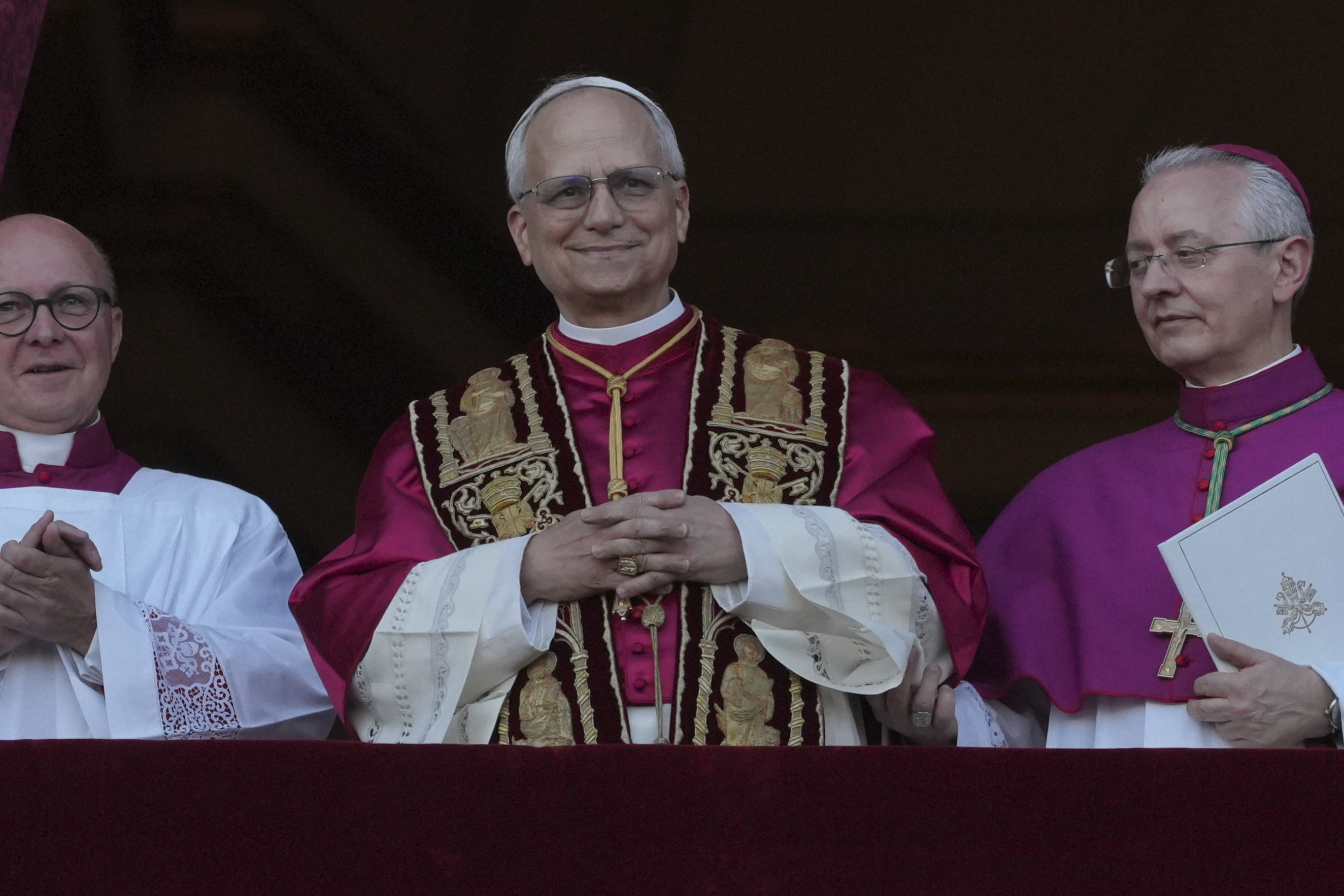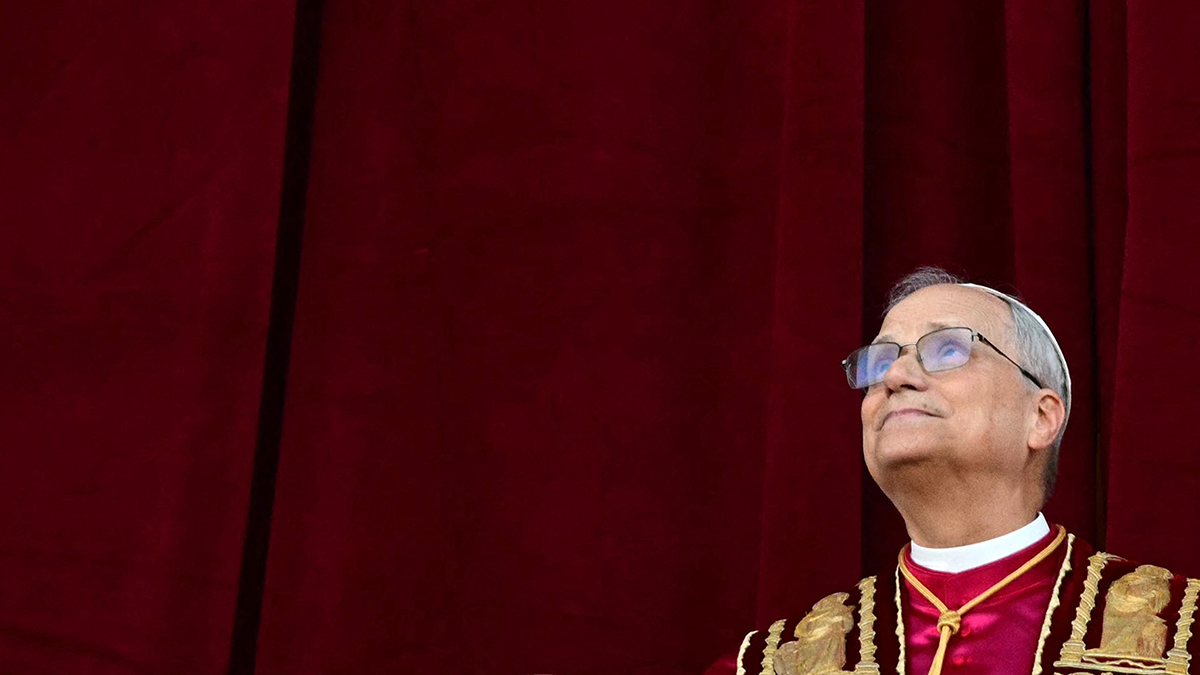Robert Prevost: The First American Pope & Peru Ties Explained
Robert Prevost: The American Pope with a Peruvian Heart
Introduction: A Historic Papal Election
Imagine a world where the seemingly impossible becomes reality. That's exactly what happened when American-born Cardinal Robert Prevost was elected as the next Pope, taking the name Leo XIV. This marks a pivotal moment in the 2,000-year history of the Catholic Church, making him the first Pope born in the United States. But there's more to this story than just his American roots; Prevost's deep connection to Peru is a crucial part of his identity and ministry.
Who is Pope Leo XIV (Robert Prevost)?
Robert Prevost, now Pope Leo XIV, is a 69-year-old figure with a fascinating background. Hailing from Chicago, he isn't just an American; he's also a Peruvian citizen. His life has been dedicated to missionary work and serving the Church, particularly in Peru. He most recently led the Vatican’s powerful office of bishops. Let’s delve into his journey and what it means for the Catholic Church.
The Surprise Election: An American Pope?
Challenging Expectations
The election of an American Pope came as a surprise to many. Why? Because there's long been a certain unease about a U.S. citizen holding such a powerful religious position. Given the significant geopolitical influence of the United States, some have worried about potential conflicts of interest or the appearance of undue influence. Prevost’s election shatters these assumptions.
The Taboo Factor
The idea of an American Pope was, for some, almost taboo. Think of it like this: it's like having the world's most powerful tech CEO also running a major global charity. Questions about impartiality and the potential for perceived biases inevitably arise. Prevost had to overcome these pre-conceived notions to be considered a viable candidate.
Prevost's Peruvian Connection: A Life of Service
Missionary Roots
Prevost’s journey to becoming Pope is deeply intertwined with his missionary work in Peru. He wasn't just visiting; he immersed himself in the culture, learned the language, and dedicated his life to serving the Peruvian people. This experience shaped his worldview and instilled in him a deep understanding of the challenges faced by communities in the developing world.
Archbishop of Chiclayo
His commitment to Peru culminated in his appointment as the Archbishop of Chiclayo, a significant diocese in the country. As Archbishop, he oversaw the spiritual well-being of countless individuals, addressed social injustices, and worked tirelessly to improve the lives of those in his care. His leadership in Chiclayo demonstrated his ability to connect with people from all walks of life and his unwavering dedication to the Catholic faith.
Prevost's Role at the Vatican: A Key Player
Leading the Congregation for Bishops
Before his election as Pope, Prevost held a prominent position within the Vatican: Prefect of the Dicastery for Bishops. This powerful office is responsible for vetting and recommending candidates for bishoprics around the world. His role gave him significant influence over the selection of future leaders within the Church. This position gave him a global perspective on the church and its challenges.
Understanding the Global Church
Leading the Congregation for Bishops provided Prevost with unparalleled insight into the diverse challenges and opportunities facing the Catholic Church globally. He interacted with bishops from all corners of the world, gaining firsthand knowledge of the issues they face in their respective communities. This experience equipped him with a unique understanding of the Church's global mission and the needs of its diverse flock.
What Does Pope Leo XIV's Election Mean for the Catholic Church?
A New Perspective
Prevost's election signals a potential shift in the Church's priorities. His background as a missionary and his deep connection to Latin America could lead to a greater focus on issues such as poverty, social justice, and the needs of the developing world. He brings a fresh perspective shaped by his lived experience.
Reaching Out to the Periphery
Pope Francis has often spoken about the importance of reaching out to the "periphery," those on the margins of society. Prevost's experience in Peru makes him well-suited to continue this mission. He understands the challenges faced by marginalized communities and is likely to champion their cause within the Church.
Challenges Facing Pope Leo XIV
Navigating Global Politics
As the first American Pope, Leo XIV will inevitably face questions about the Church's relationship with the United States government and its role in global politics. He will need to carefully navigate these complex issues to maintain the Church's independence and credibility.
Maintaining Unity
The Catholic Church is a vast and diverse institution, with members holding a wide range of views on various issues. One of Pope Leo XIV's primary challenges will be to maintain unity within the Church and to bridge the divides that exist between different factions. He will need to be a skilled communicator and a compassionate leader to bring people together.
The Significance of the Name "Leo XIV"
Choosing a papal name is a significant decision, often reflecting the new Pope's vision for his pontificate. By choosing the name Leo XIV, Prevost is signaling a connection to previous Popes who bore that name. While there haven't been many popes named Leo in recent history, each one brought a unique perspective to the papacy. Choosing Leo XIV could suggest a desire to emulate the strengths of past popes and to address the challenges of the modern world with wisdom and courage.
Robert Prevost: A Humble Servant
Focus on Service
Throughout his life, Robert Prevost has demonstrated a deep commitment to service. Whether as a missionary in Peru or as a Vatican official, he has always put the needs of others before his own. This spirit of service is likely to be a defining characteristic of his papacy.
A Man of the People
Prevost's experience working with marginalized communities in Peru has instilled in him a deep empathy for the poor and vulnerable. He is a man of the people, someone who understands their struggles and is committed to fighting for social justice. We can expect him to be a strong advocate for the voiceless and a champion of the oppressed.
Conclusion: A New Chapter for the Catholic Church
The election of Robert Prevost as Pope Leo XIV marks a historic moment for the Catholic Church. As the first American Pope with deep ties to Peru, he brings a unique perspective and a wealth of experience to the papacy. His leadership will undoubtedly shape the future of the Church and its role in the world. Only time will tell the full extent of his influence, but one thing is certain: his papacy will be one to watch.
Frequently Asked Questions
Q: Why was the election of an American Pope considered unusual?
A: Due to the U.S.'s significant geopolitical power, there were concerns about potential conflicts of interest or undue influence in Church matters.
Q: What is the significance of Robert Prevost's connection to Peru?
A: His years spent as a missionary and Archbishop in Peru shaped his understanding of poverty, social justice, and the needs of the developing world, potentially influencing his papacy's priorities.
Q: What was Robert Prevost's role at the Vatican before becoming Pope?
A: He was the Prefect of the Dicastery for Bishops, responsible for vetting and recommending candidates for bishoprics worldwide, giving him a broad understanding of the global Church.
Q: How might Pope Leo XIV's papacy differ from previous ones?
A: His background suggests a greater focus on issues like poverty, social justice, and the needs of marginalized communities, continuing Pope Francis's emphasis on reaching the "periphery."
Q: What are some of the key challenges facing Pope Leo XIV?
A: He'll need to navigate complex global politics, maintain unity within the diverse Catholic Church, and address various social and theological issues facing the modern world.

